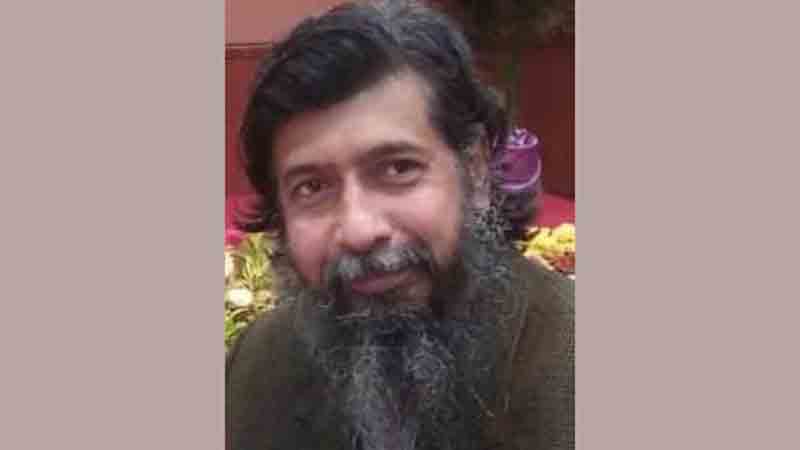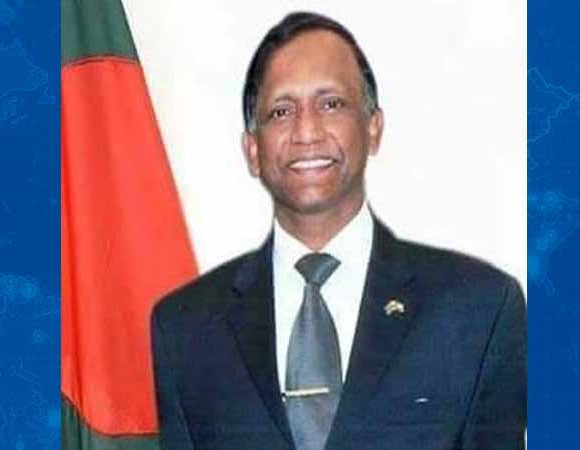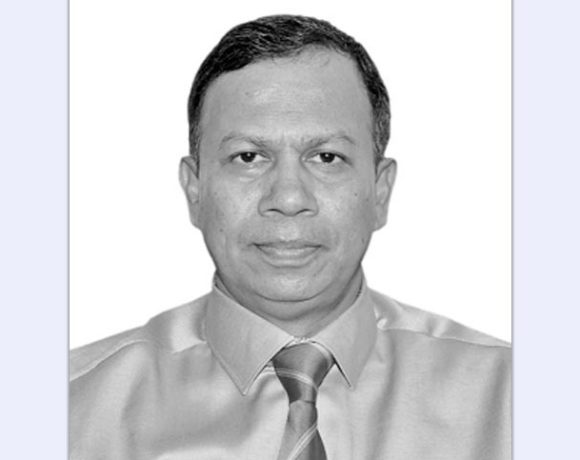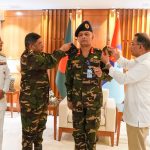Security and defence in the foreign policy and diplomacy of Bangladesh

Dr ISHARAF HOSSAIN
Diplomatic history, geopolitical strategy, and the concept of a nation’s security interests and matters of strategic concern reflect advanced intellectual outlooks and analytical approaches. These themes are deeply interconnected and highly relevant to the broader discourse on security and defence within the foreign policy and diplomacy framework. While this relevance applies to all nations, it holds particular significance for Bangladesh, whose strategic landscape is dynamic and continually evolving.
Foreign policy is shaped not by a single factor, but by a complex interplay of objective conditions, the security environment, national unity, resource strength, social values, domestic pressures, and more. Henry Kissinger once said, “A nation’s values define what is just, its strength determines what is possible, its domestic structures decide what policies can be implemented.’’ As summed up by Tabarak Husain, a pioneering Foreign Secretary of independent Bangladesh, this perspective reflects essential directions for understanding foreign policy, particularly regarding security and defence. According to him, the general public is largely unable to grasp the core elements of foreign policy, except for those within well-informed circles. He therefore emphasises the importance of identifying and analysing broad national goals about domestic factors that shape foreign policy. He asserts:
By any standard of judgment, insurance against external threats to security ranks high among national goals. Maintenance of security calls for a wide range of actions. Of crucial importance are internal stability and national unity, underpinned by a collective willingness to make sacrifices in defence of national rights. Based on shared convictions, internal cohesion inevitably contributes to national security.
Thus, national security emerges as a vital component of foreign policy for the broad national goals of the country, central to the defence of national rights, national unity, and internal stability. In this context, defence diplomacy emerges as a relatively new phenomenon in the field. It is a recent development aimed at navigating the strategic complexities and uncertainties of the post–Cold War era. Despite its growing relevance, it has received limited analytical attention, particularly concerning defence relations in South and Southeast Asia. In the case of Bangladesh, although the core objectives of this discussion broadly align with those of defence diplomacy, my focus is to explore a different dimension: formulating and implementing the state’s foreign policy mechanism through integrating security and defence considerations.
A commonly held perception of defence or military diplomacy emphasises its role as a vital component of foreign policy. It involves using military resources and capabilities to achieve foreign policy objectives through peaceful means. Defence diplomacy is a tool for nations to build bilateral and multilateral relationships, strengthen security cooperation, and prevent conflict by engaging with other states and international organisations on defence and security matters. Its primary focus is fostering trust and collaboration through military to military engagements, joint training exercises, and personnel exchanges.
At a time, from a security and defence perspective, defence diplomacy plays a critical role in promoting stability by promoting dialogue and joint initiatives. Its primary objectives include preventing conflict, resolving disputes peacefully, and enhancing regional and global security. Defence diplomacy involves exchanging information, expertise, and best practices in defence and security, alongside collaborative efforts to address shared challenges such as terrorism, cyber threats, and transnational crimes. It is a valuable complement to traditional diplomatic channels by providing a distinct platform for engagement and cooperation, particularly within sensitive and strategic security domains.
From the perspective of traditional foreign affairs, defence diplomacy is a powerful instrument for advancing a nation’s foreign policy objectives, particularly in ensuring peace, security, and regional stability. Fostering cooperation and building mutual trust among states contributes to developing a more secure and stable international environment that benefits all nations. Defence diplomacy embodies a proactive and strategic approach, leveraging military capabilities not for confrontation but to support diplomatic efforts, strengthen national security, and expand a country’s influence on the global stage. As such, it is a vital tool for the effective implementation of foreign policy and the broader security interests of the state.
Recognizing its strategic importance, many advanced nations, including the United States, United Kingdom, Russia, China, and several NATO members have established dedicated defence diplomatic cadres. These cadres consist of officers and officials selected from mid to senior level positions within the armed forces or security services, who then undergo specialized training in foreign policy, military strategy, international law, intelligence cooperation, and cross-cultural communication. Once trained, they are systematically deployed to embassies, multilateral missions, strategic think tanks, and security forums, both domestically and internationally. In many countries, intelligence coordination is integrated into this framework to enhance information sharing and strategic foresight. Bangladesh can learn from them for same purpose.
In this context, the integration of national security strategy and experts with the national foreign policy and its management is undeniably essential. The existing gap in this area could become a serious concern if a comprehensive national security policy is not formulated soon, especially as the geopolitical dynamics of the greater Indo-Pacific and South Asian regions are expected to grow increasingly complex in the near future. There is also a clear and pressing need for the involvement of security and defence experts in diplomacy. However, this must be approached with a neutral, politically unbiased perspective and handled in a thoroughly professional manner. Only then can the process effectively safeguard Bangladesh’s national interests in the areas of security, defence and diplomacy under the broader objectives of its foreign policy.
Foreign policy formulation is an ongoing process that aims to match what is desirable with what is achievable. Policymakers should carefully evaluate all available options before choosing the most practical course of action to attain the intended outcomes. They must also consider the vital link between policy objectives and the resources needed to implement them successfully. So, Bangladesh could always consider and explore the possibility of adopting any progressive new proposal and system.
From the perspective of democracy, good governance, and a political system aimed at national unity, stability, peace, development, and progress, an open society, free institutions, a free press, and informed public debate are essential for building a sound and enduring national consensus. Unfortunately, there has often been a disconnect between our objective realities and the goals we aspire to in these areas. As setbacks occurred, doubts began to overshadow our intentions. Internal political developments undermined our credibility; with governance frequently in disarray and political parties entrenched in discord, our policies failed to inspire confidence domestically and struggled to earn trust internationally. In such a circumstance, it has been difficult for Bangladesh to pursue vigorous or sustained foreign policy initiatives. Despite this situation, Bangladesh needs a ‘vigorous or sustained foreign policy initiative’ as an essential dynamic of national governance and government. Thus, the current context for rebuilding new Bangladesh deserves all kinds of advanced and progressive initiatives and development.
Bangladesh currently adopts a defensive, peace-oriented, and non-aligned foreign policy, strategically balancing its position within a complex geopolitical environment. However, in recent years, especially following significant political shifts in August 2024, Bangladesh has transitioned toward a more diversified and multipolar defence strategy. Bangladesh has maintained its position as one of the leading contributors to United Nations peacekeeping operations. This active involvement has reinforced its international image as a responsible actor and enhanced its defence diplomacy through the strategic use of soft power. Bangladesh’s current security and defence posture reflects a logical evolution of its strategic vision, shifting from a reliance on traditional alliances to a multipolar, pragmatic, and independent approach. This transformation contributes to regional stability and strengthens Bangladesh’s role in global security dynamics. Expert observed and viewed: ‘Foreign policy must guard against excessive reliance on liberalism, as an overdose can lead to the erosion of Bangladesh’s vital national interests.’ Therefore, it is essential to strengthen military deterrence as a core line of defence in foreign policy. One of the key gaps in current foreign policy is the insufficient emphasis on the role of military defence. Bangladesh must develop a credible ‘deterrent strategy’ to effectively safeguard its land, sea, and airspace.
To this context, the political elites of the country must prioritize good governance, prudent policymaking, effective conflict management, and bipartisanship in the broader interest of national security. The stability, security, and development of the region also require constructive engagement, regional collaboration, and the peaceful resolution of existing disputes to foster long-term, meaningful relationships. Therefore, it is imperative for Bangladesh to carefully consider the political, economic, and security implications of its foreign policy decisions. However, according to Kamal Uddin Ahmed, author of the book Bangladesh and Its Neighbours: both the medium- and long-term foreign policy goals of the country need to be thoroughly addressed by policy planners. “The current structure of the Ministry of Foreign Affairs in Bangladesh does not appear to meet the demands and challenges of the new millennium.’’ Hence, it is essential to restructure the Ministry of Foreign Affairs to include dedicated units for policy planning, research, and legal affairs in order to effectively address regional and international challenges. Bangladesh must pursue a pragmatic and proactive foreign policy, engaging actively with its neighbours to build an atmosphere of trust and mutual understanding. Such an approach would not only enhance the country’s ability to navigate complex foreign policy issues but also strengthen national security and promote sustainable development. To him, ‘indeed, the ‘art of diplomacy’ must be cultivated assiduously to meet the foreign policy challenges Bangladesh faces in the new millennium.’
A significant observation is very much relevant that was made by Dr. Syed Hamid Albar, former Malaysian Minister of Foreign Affairs, Defence, and Home Affairs, during a regional discussion on Bangladesh held in Kuala Lumpur in December 2024. He viewed: “Dhaka needs its strategic narrative to tackle regional geopolitics.” He argued that Bangladesh has the potential to integrate into the ASEAN mechanism by leveraging its strategic geographic location and historical significance. However, achieving this would require a well-defined strategic narrative and a coherent diplomatic strategy to navigate complex global and regional geostrategic dynamics. Bangladesh’s geopolitical position between two major powers, China and India, makes it a pivotal actor in South and Southeast Asia. At the same time, the legacy of the 1971 Liberation War continues to shape the country’s national identity and international posture. Dr. Albar also stressed that this historical context should not be overlooked but used as a foundation for recalibrating Bangladesh’s foreign policy. He noted that Bangladesh’s joining of ASEAN demands more than dialogue; it necessitates concrete action and commitment. A strong and consistent presence in international forums is essential to build a modern and dynamic Bangladesh, reinforcing its voice and visibility on the global stage.
In line with such kinds of various opinions, it is both urgent and essential for Bangladesh to develop and modernize its National Defence Policy and System. These efforts, grounded in the reasons discussed here, will support the development of a more dynamic and effective foreign policy that prioritizes Bangladesh’s highest national interests. Recent and ongoing national discourses and dialogues (July 2025) on ‘National Unity for National Security,’ involving various stakeholders, experts, think tanks, including political leaders, also have echoed similar views, further validating the necessity and urgency of such development. In this cause, the essence of some views and recommendations of high-ranking officials and experts of the country are much relevant and deserve serious consideration: To effectively address and lead in the face of evolving strategic challenges and opportunities, Bangladesh requires an integrated and comprehensive ‘Defence and Foreign Policy’. This policy must harmonize the principles and practices of defence, security, peace, diplomacy, and development, all aligned under the overarching framework of ‘The Highest Priority to the National Interest of Bangladesh.’ By adopting such a cohesive and forward-looking strategy, Bangladesh can position itself as a capable and influential actor in both regional and international affairs. Because, Bangladesh needs to develop its defence capabilities, but there is currently no clear emphasis on where that development should be directed. There is no concrete guideline, no strategic focus. Whether its immediate priority is to protect its sea lines of communication, defend its territorial integrity, or address other pressing concerns, the direction remains undefined. Thus, Bangladesh urgently needs a secure sea line of communication. This implies a strong and capable navy. Without secure maritime routes, Bangladesh’s economy would collapse, no imports, no exports. In such a scenario, survival becomes uncertain. Therefore, Bangladesh must prioritize territorial defence. A robust defence position is essential; without it, Bangladesh cannot effectively implement or sustain its effective foreign policy.
To the current context, Bangladesh can draw also valuable lessons from its illustrious past to address all kinds of strategic needs and future advancement. In fact, a notable example is the successful integration of defence and diplomacy during the period from 1978 to 1981. This era marked significant policy shifts grounded in the principles of “national interest” and “public interest,” effectively uniting the people and steering them toward common national objectives. To contemporary academic- experts, this period is often regarded as a demonstration of foreign policy functioning as an art form, reflecting the view of David Frost, the esteemed British media figure and author, who aptly observed, “Diplomacy is the art of letting somebody else have your way.”
Therefore, to achieve the progressive and strategic position it aspires to, Bangladesh must adopt a vigorous and sustained foreign policy and system with the proper integration of security and defence outlook. These must be adaptive and forward-looking, addressing the shifting dynamics of regional and global power politics, evolving geopolitical realities, and the urgent need for economic and multilateral cooperation. Finally, Bangladesh can effectively safeguard its national interests and enhance its international influence only through a desired comprehensive and proactive approach.
♦Reprinted from the OCPASS Perspectives, Inaugural Issue, August 2025, published by Osmani Center for Peace and Security Studies (OCPASS), Dhaka
♦The author serves as the Principal Research Fellow and President of the Muslim World Research Centre (MWRC), a Kuala Lumpur-based think tank.

















